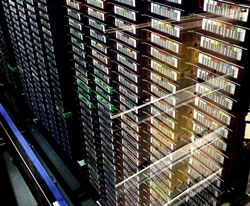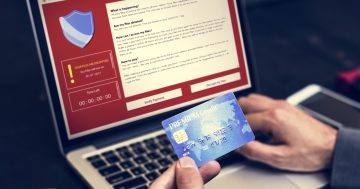David Alexander* says there are changes on the horizon that will make personal data more collaborative and consistent.
 In 2006, British mathematician and entrepreneur Clive Humby said, “Data is the new oil.”
In 2006, British mathematician and entrepreneur Clive Humby said, “Data is the new oil.”
The Economist furthered that comparison between the economy that has risen around data and the oil industry in a 2017 article.
Comparing data to something valuable and coveted all over the world, such as oil, or even gold, helps people understand just how much of a commodity data has become, but it’s also important to remember that data is its own thing and must be approached with a different mindset.
Fortunately, there are some changes on the horizon that will make personal data more collaborative and consistent.
This will benefit individuals and large corporations alike.
Better data management can reduce the stress caused by change
Historically, individuals in the US have changed jobs more than 12 times in their lifetime.
With the recent rise of remote work opportunities and the emergence of new industries, that number is only bound to increase.
One of the major stressors of changing jobs is all of the information that must be sent from job candidates to employers.
It can be time-consuming to find and submit information that isn’t consolidated in one place.
It can be equally stressful waiting for that information to be checked and verified by the screener.
New jobs aren’t the only life changes requiring significant data transfers.
School admissions or immigrations to a new country also require multiple verifications of someone’s personal data.
People have enough daily stressors.
If the personal data verification process can be streamlined, it can relieve a lot of stress and profoundly improve the quality of people’s lives.
Blockchain technology will change how data is stored and used
Blockchain discussions are happening everywhere these days, but few people have an understanding of the vast potential of this technology.
A blockchain is a digital database or ledger that is distributed among nodes on a network.
Blockchains are mostly known for their use in managing cryptocurrency, but today they are already powering many other applications for data transfers and payment systems, smart contracts, and even the secure transfer of personal data such as medical information.
Blockchains have made data decentralized and shifted the power of controls back to individuals.
This makes blockchain technology ideal for managing personal background information.
While mass adoption of blockchain technology for disseminating and verifying personal data may still be a few years away, it’s definitely where personal data is headed.
Accessing someone’s background information for the purpose of verifying their education or employment on a legacy system is a slow and clumsy process, often requiring multiple phone calls and emails while maintaining access to multiple siloed databases (which may or may not provide accurate, complete, and current information).
Also, employers need permission to access information about a person’s background, requiring the job candidate to complete and return permission forms before the process can begin.
If education, employment, and other relevant background information could be consolidated on a blockchain, background screeners would be able to verify the information instantly and reference it whenever necessary without having to go through a gatekeeper or use multiple search services.
Even static data, like a person’s degree from an institution, needs to be re-verified from time to time and blockchain technology could make this a much simpler and streamlined process.
Furthermore, individuals would have the convenience of having all of their background information in one place and would know exactly what was being shared and have the power to securely share it with whomever they wish.
The future of personal data
Major industries and governments both have an interest in leveraging technology to make personal data fully digital.
The key to a smooth transformation to this new digital data world will be the introduction of common data standards to create consistency for individuals, providers, and organizations.
Anyone granted permission to access data will need to abide by these agreed-upon standards.
Data should be completely integrated with the services that rely on it to verify identity or a person’s job status.
With 94 per cent of employers conducting at least one background screen, the demand for better personal data access is high.
Instead of a multi-step, disconnected permission request system, the future of data access will be more unified, fluid and collaborative.
It’s important to understand that the data revolution will not happen overnight.
Before every data-dependent system can be consolidated or moved to a blockchain, current databases must first bridge the gap by improving the end-user approach.
This begins by allowing the user to have more control over their own personal data.
Digital-first companies acting as intermediaries in the verification process have the unique position of being able to make the data exchange process easier for everyone involved.
In the same way, these next-gen companies are changing how insurance is purchased.
Or, a company that leverages APIs to access every school’s database can streamline and vastly improve the education verification process.
Similar processes can be used to create secure interfaces that make other types of personal data easier to access by everyone who needs to.
Data storage and sharing have been overcomplicated for too long.
It takes thinking differently about how personal data is handled to affect change.
An individual’s data story is one of the most valuable things they have.
It’s time individuals had more control over it.
*David Alexander is the CTO of ZippedScript, a leading education verification company.
This article first appeared at venturebeat.com.











